
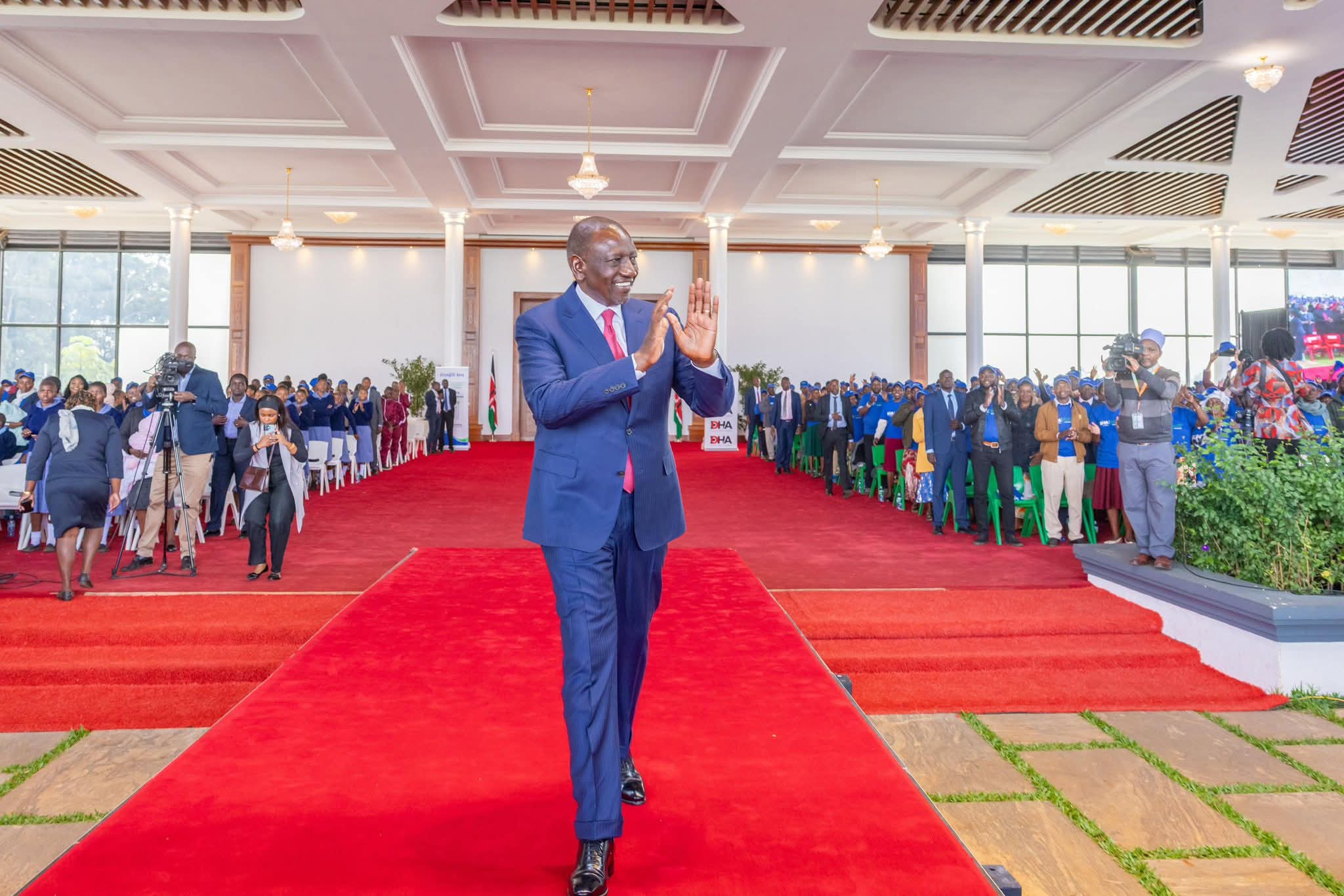 President William Ruto, when he launched the SHA sponsorship to the vulnerable at State House on September 19, 2025/PCS
President William Ruto, when he launched the SHA sponsorship to the vulnerable at State House on September 19, 2025/PCS The highlight of President William Ruto’s week was the commissioning of the Mombasa Commuter Rail Service, a transformative project linking Miritini, Changamwe West, Changamwe East, Shimanzi, Mazeras, and Mombasa CBD.
The 13.8-kilometre rehabilitation, together with a 2.8-kilometre link to the SGR, closes a historic gap at Kilometre Zero and marks a bold step in modernising transport.
By connecting the city centre with the SGR terminus at Miritini, the rail line will ease congestion and offer Kenyans faster, safer, and more reliable journeys.
Ruto himself rode the train from the Mombasa SGR terminus to Miritini.
Here's the roundup;
September 14, Sunday
The week began on a spiritual note as the President attended an interdenominational church service at State House, Nairobi.
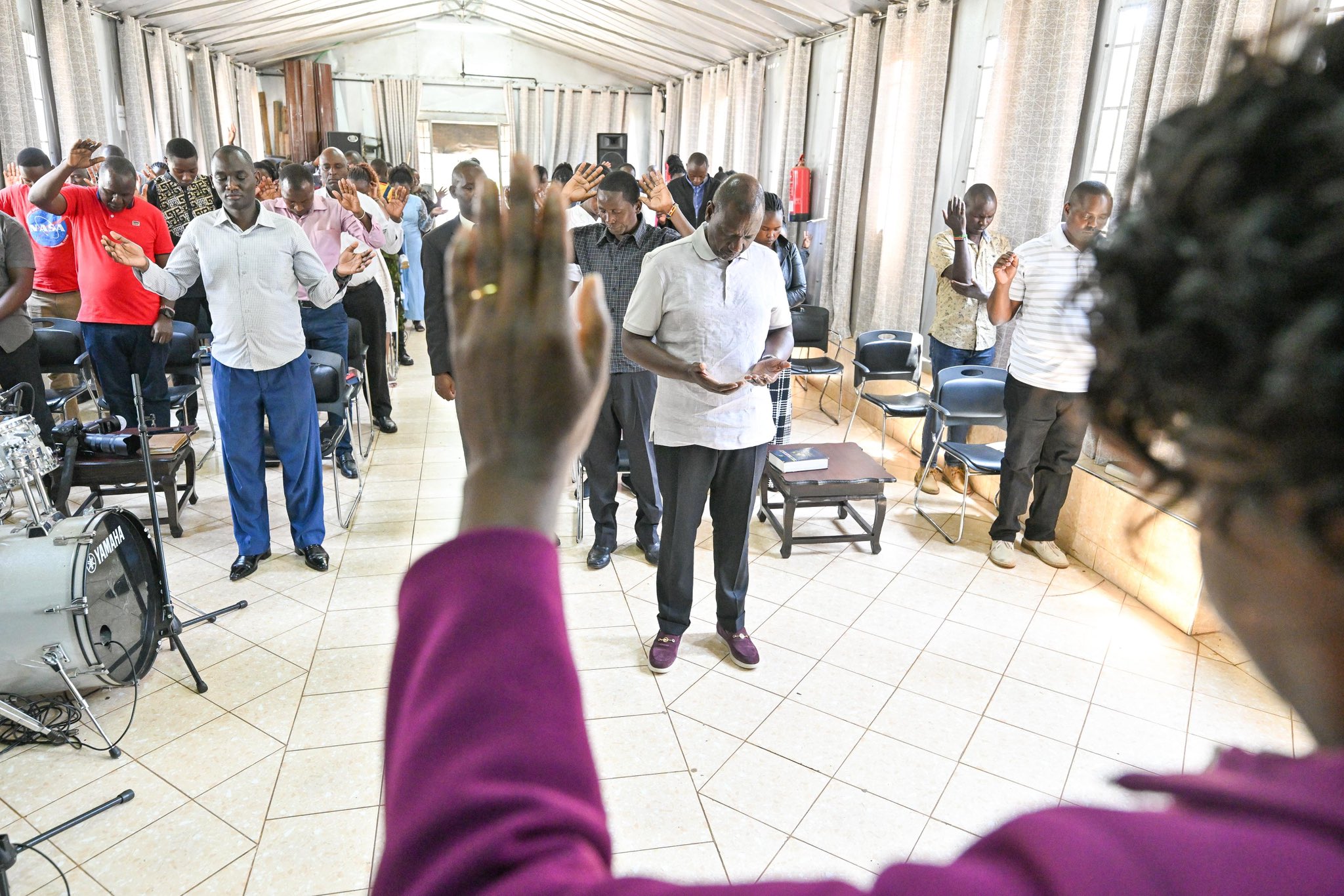 President Ruyo during a church service at State House on September 14, 2025/PCS
President Ruyo during a church service at State House on September 14, 2025/PCS September 15, Monday
In Kiambu, Ruto joined the people of Gikambura to celebrate the life of Mzee Isaac Ngugi, father of Majority Leader Kimani Ichung’wah.
He praised Ngugi as a self-made man who rose from humble beginnings to become a successful businessman and a pillar of the community.
The President described him as generous, inspirational, and a leader whose legacy continues to shape lives.
September 16, Tuesday
The President shifted focus to industrialisation with the launch of the Vipingo Special Economic Zone in Kilifi County.
The 2,000-acre project is expected to attract Sh390 billion in investments, create more than 35,000 direct jobs, and catalyse broader economic growth.
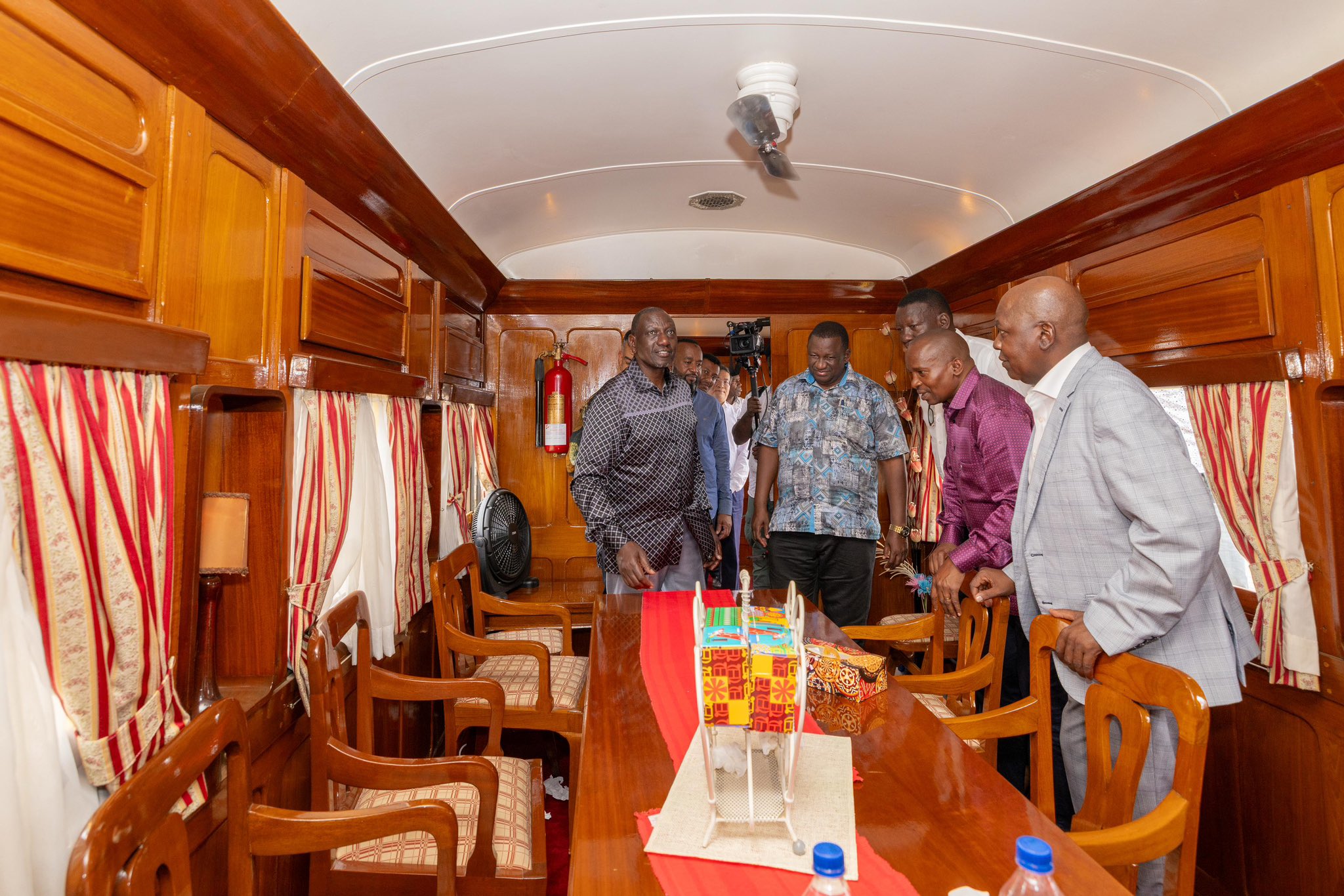 President Ruto with his Deputy Kithure Kindiki and other CSs inside a train after the commissioning of the Mombasa commuter rail service/PCS
President Ruto with his Deputy Kithure Kindiki and other CSs inside a train after the commissioning of the Mombasa commuter rail service/PCS At the event, Ruto witnessed the signing of an MoU between the Ministry of Investments, Trade and Industry and China’s Linglong Group for the establishment of an auto parts industrial park.
He said the agreement was a landmark step in Kenya’s journey to industrial transformation.
Later, while speaking at the Arise Integrated Industrial Platforms, Kenya Investment Forum at Vipingo Ridge, Ruto underscored the importance of SEZs as engines of growth.
With 38 SEZs, 111 EPZs, abundant green energy, and a youthful workforce, he argued, Kenya is poised to become Africa’s industrial powerhouse and gateway to the 1.4 billion-strong AfCFTA market.
The President also inspected the ongoing construction of the 8-kilometre Dzitsoni-,Jaribuni road, part of a 37-kilometre project that is expected to ease movement, open markets, and unlock trade opportunities in Kilifi.
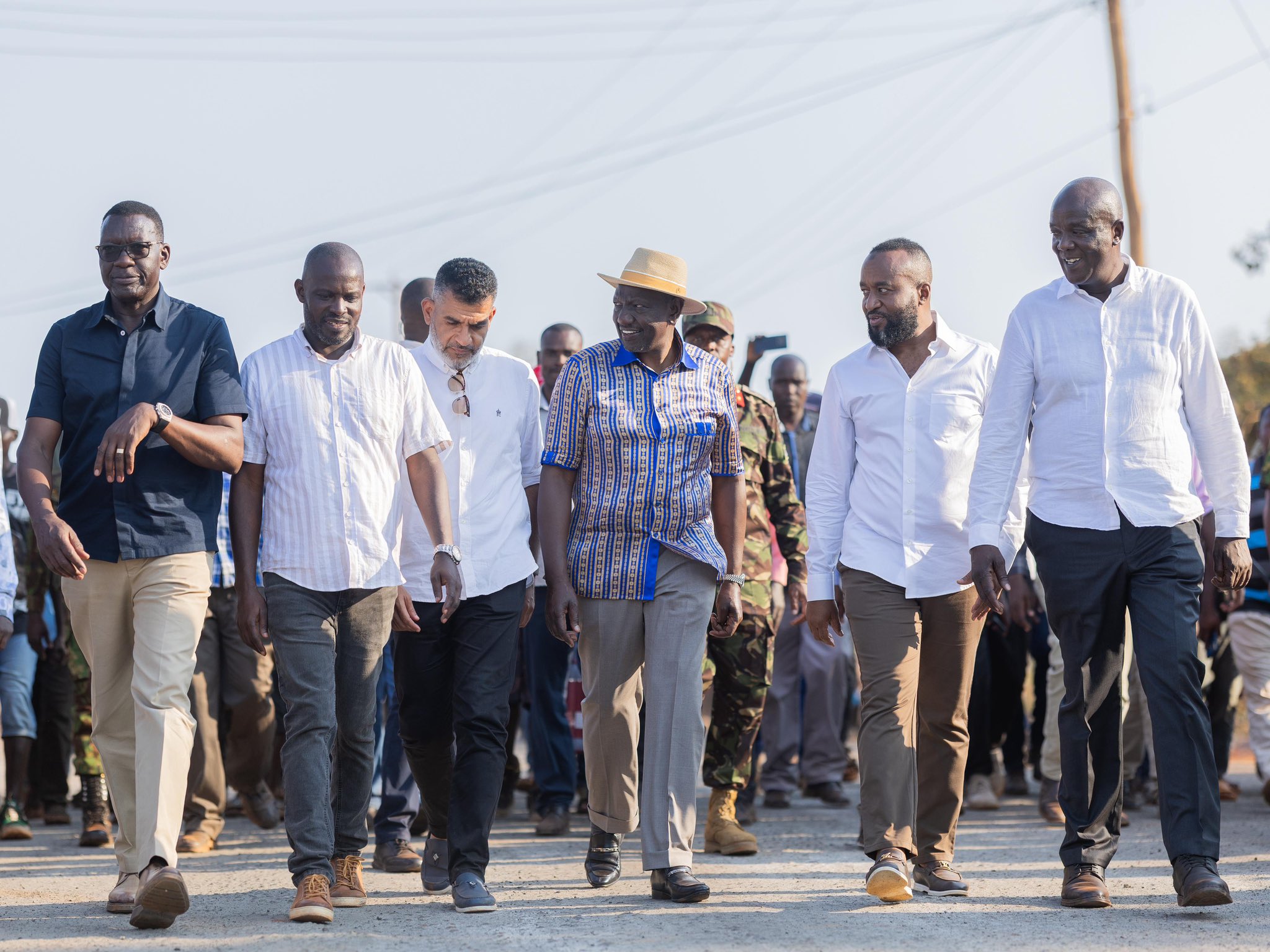 President Ruto with CSs Davis Chirchir, Hassan Joho and Governors Abdulswamad Nassir and Gideon Mung'aro in Kilifi/PCS
President Ruto with CSs Davis Chirchir, Hassan Joho and Governors Abdulswamad Nassir and Gideon Mung'aro in Kilifi/PCS Wednesday, September 17
Infrastructure again dominated the day.
After commissioning the rail service, Ruto inspected the Kwa Jomvu Interchange in Mombasa.
The project is designed to decongest traffic, boost connectivity, and facilitate the movement of goods at the region’s busiest port.
After taking the inaugural ride on the Mombasa Commuter Rail Service, he addressed residents of Miritini, hailing the new service as a game-changer for coastal transport.
Later, he toured the 1,932-unit Nyali VOK Affordable Housing Project in Mombasa, which has already created over 650 jobs.
The project, he said, is part of his administration’s pledge to deliver dignified housing, create employment, and foster inclusive urban development.
September 18, Thursday
Back in Nairobi, Ruto joined the Evangelical Association of Kenya in marking its 50th anniversary at CITAM, Karen.
He reaffirmed the long-standing partnership between church and state in promoting the social and economic wellbeing of Kenyans, describing faith as the moral compass of the nation.
Later at State House, he hosted vice-chancellors of public universities to review progress in higher education reforms.
He noted that the student-centred funding model has raised allocations from Sh44 billion in 2022 to Sh82 billion in the 2025/26 budget, significantly improving the financial standing of universities. Out of 23 institutions once declared insolvent in 2022, 10 have already stabilised, while universities collectively raised Sh1 billion last year through income-generating activities.
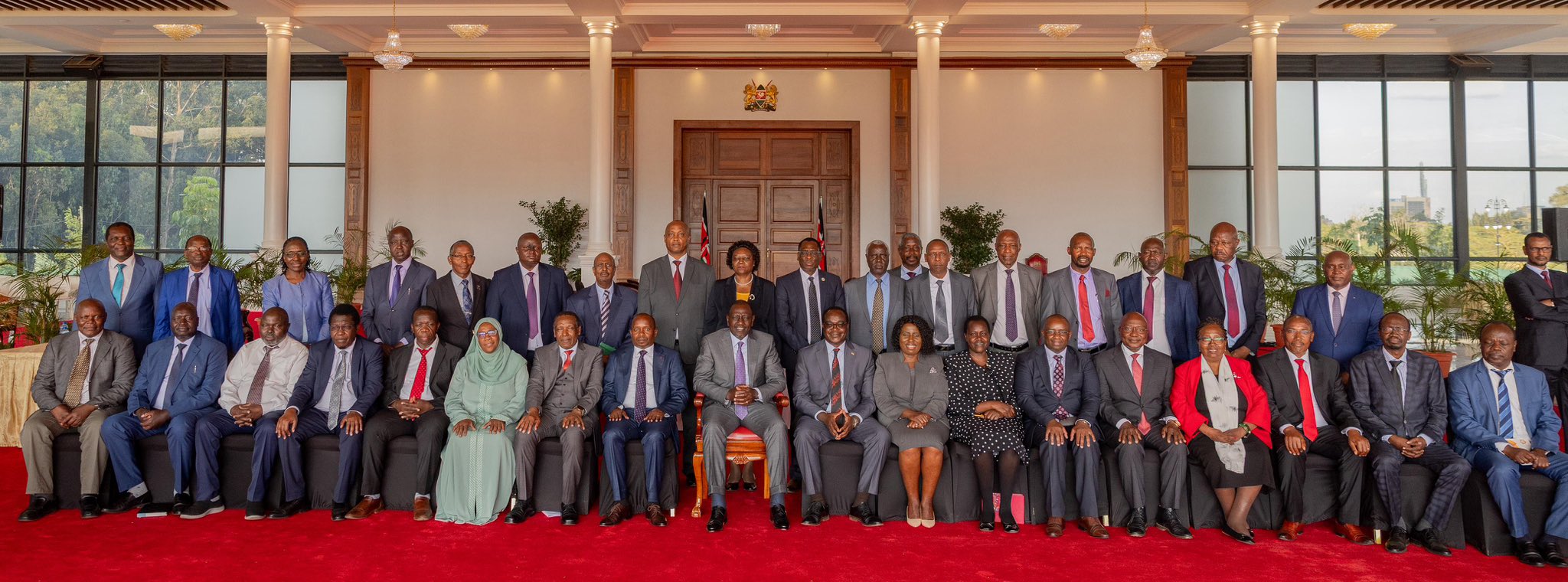 President William Ruto with vice-chancellors of public universities at State House on September 18, 2025/PCS
President William Ruto with vice-chancellors of public universities at State House on September 18, 2025/PCS September 19, Friday
Ruto wrapped up the week by launching the SHA Sponsorship Programme for vulnerable Kenyans.
The initiative, part of the government’s drive to achieve Universal Health Coverage, will ensure that 2.2 million citizens can now access free medical care.
The President described the programme as an irrevocable commitment to equitable healthcare, promising that more vulnerable Kenyans would be brought into the fold in the coming months.
“Our mission is to make healthcare robust, responsive, and truly equitable,” he said.
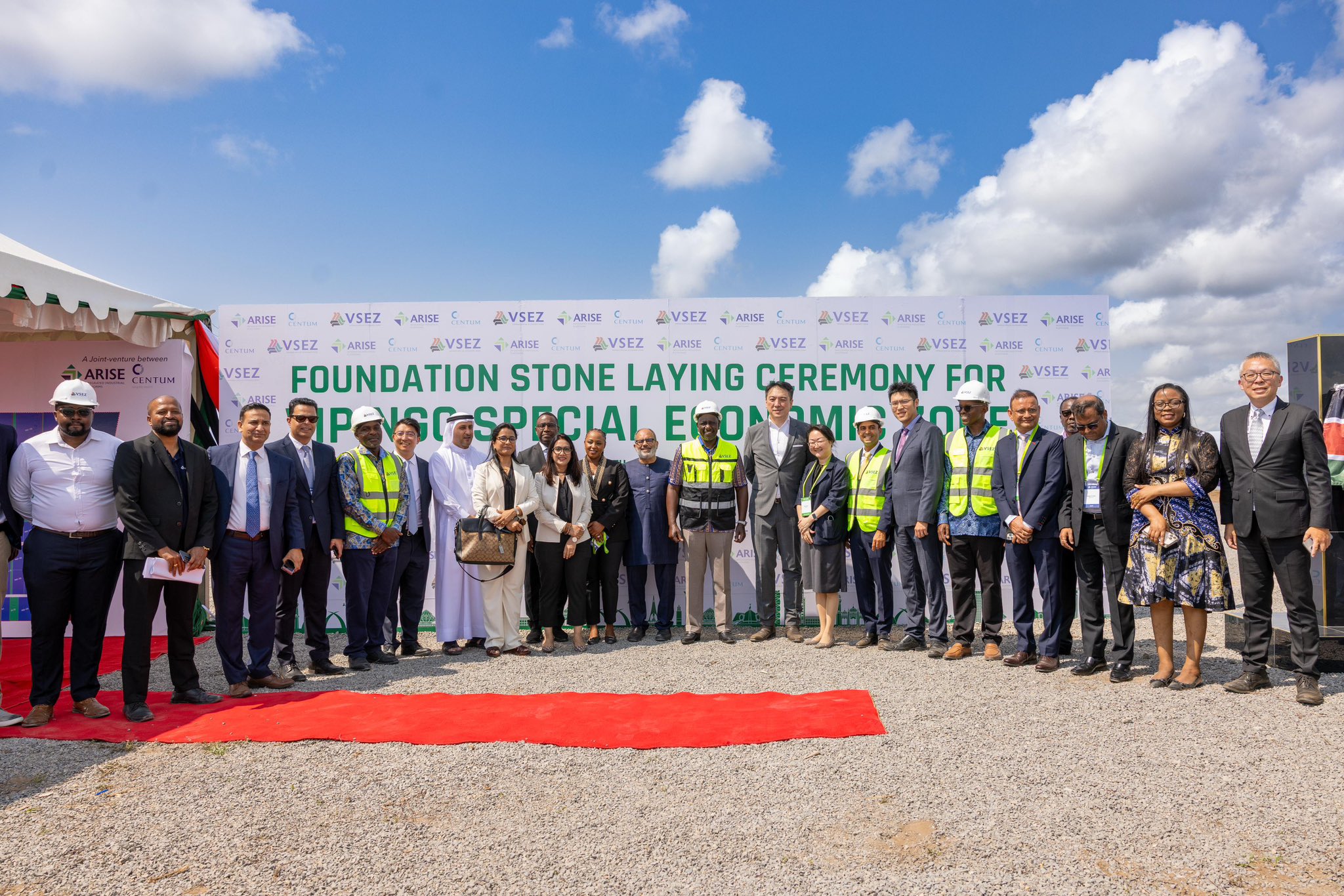 President William Ruto, with other guests, during the launch of the Vipingo Special Economic Zone in Kilifi County on September 15,2025/PCS
President William Ruto, with other guests, during the launch of the Vipingo Special Economic Zone in Kilifi County on September 15,2025/PCS 












